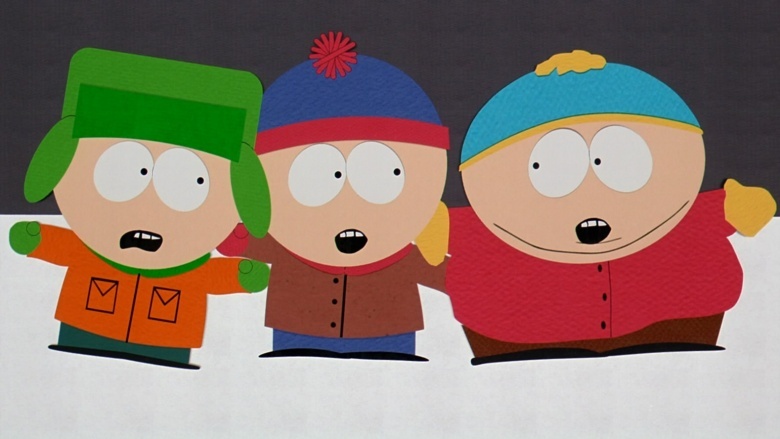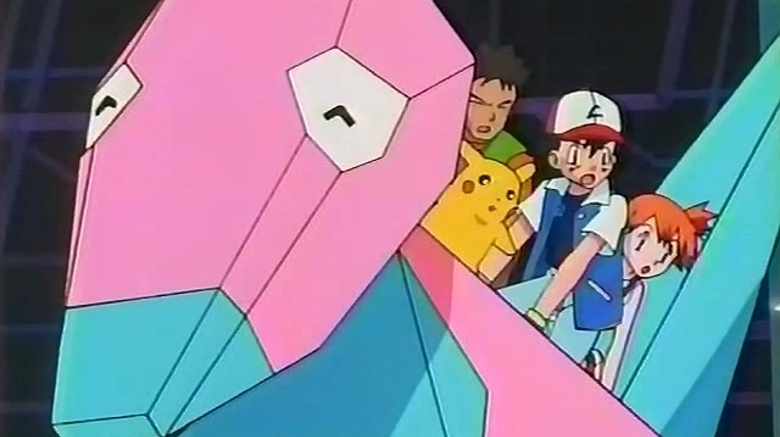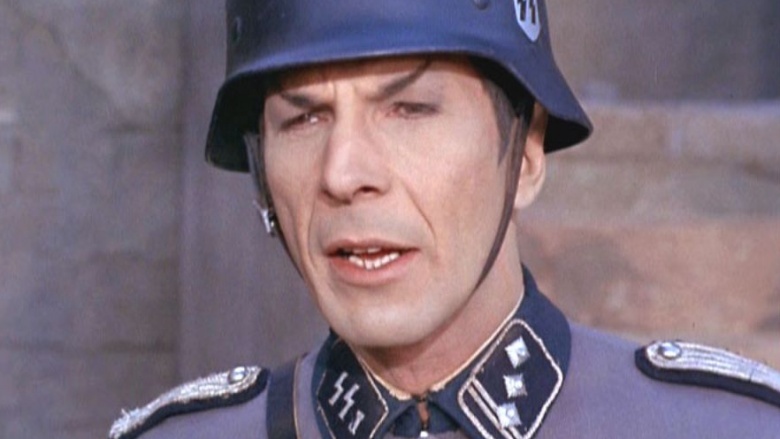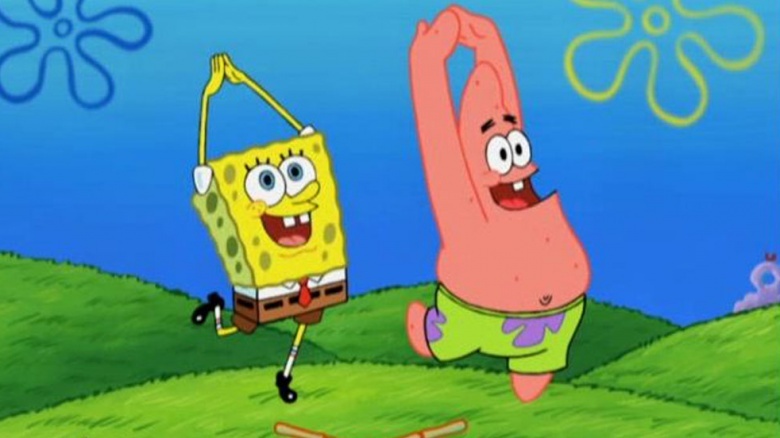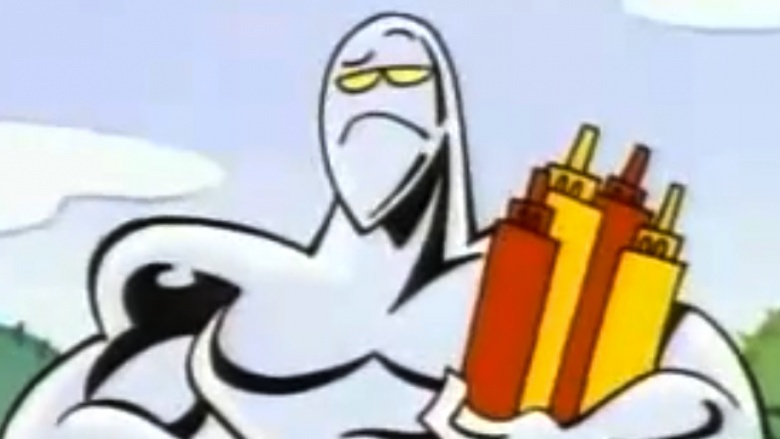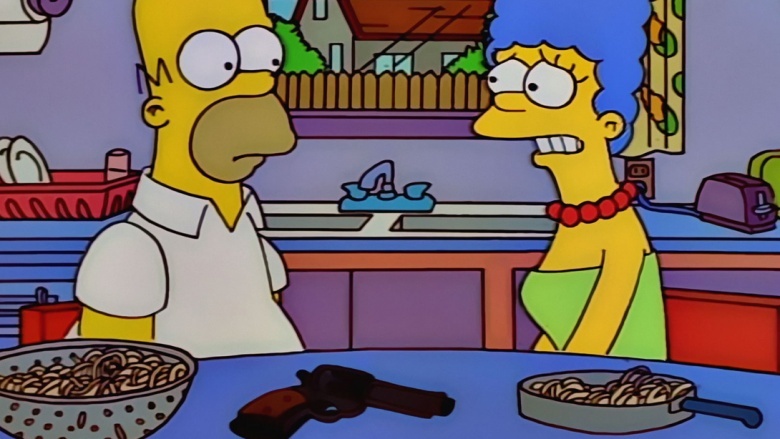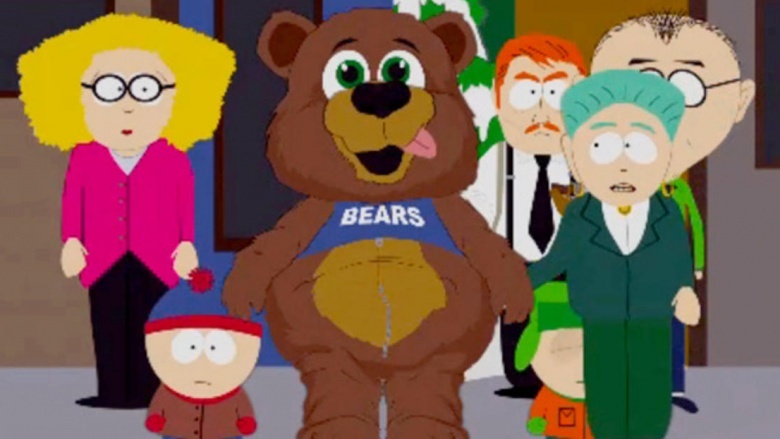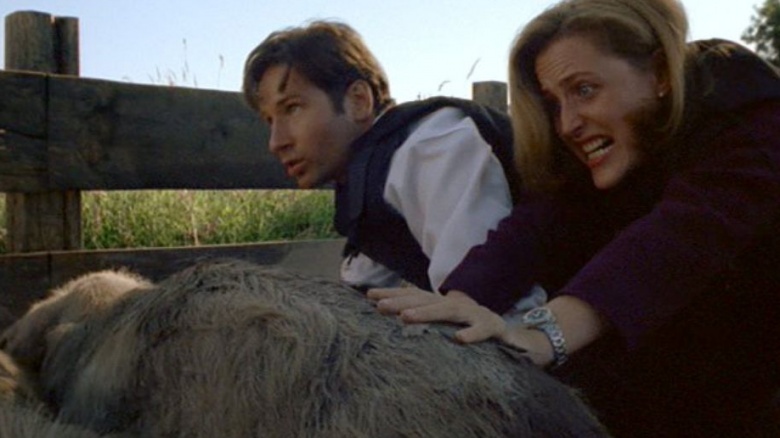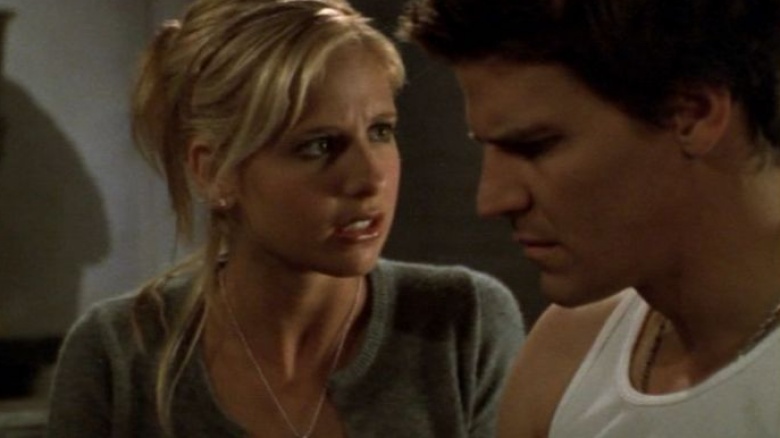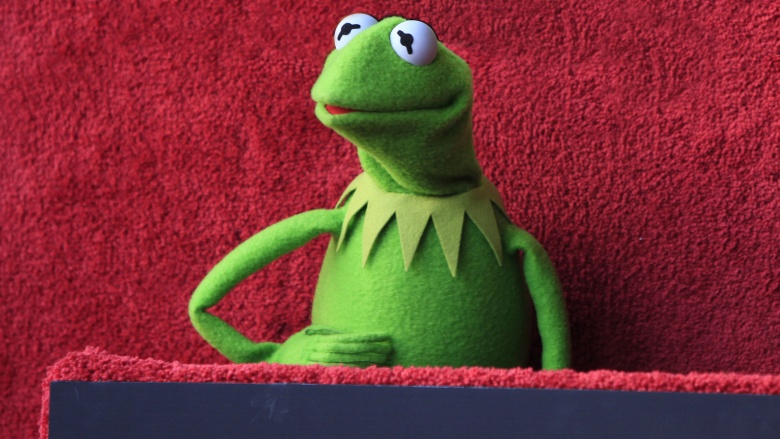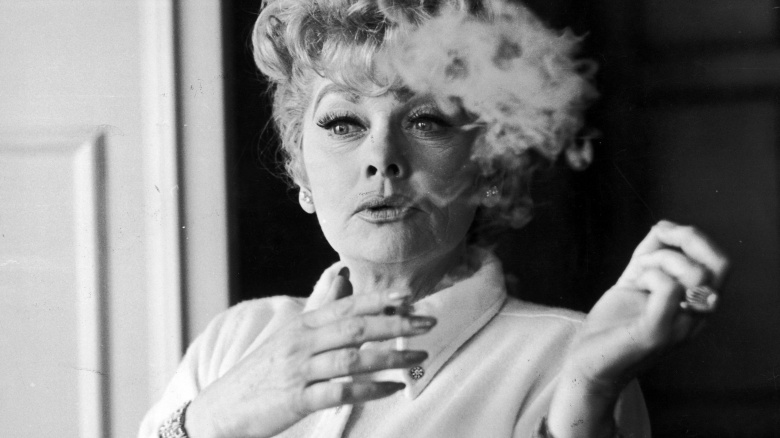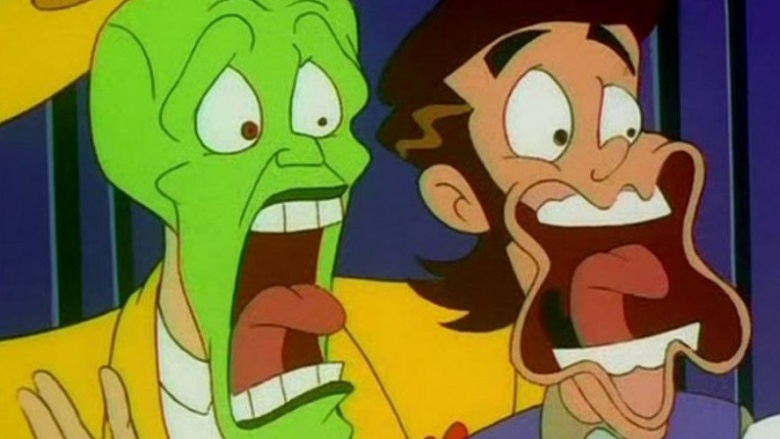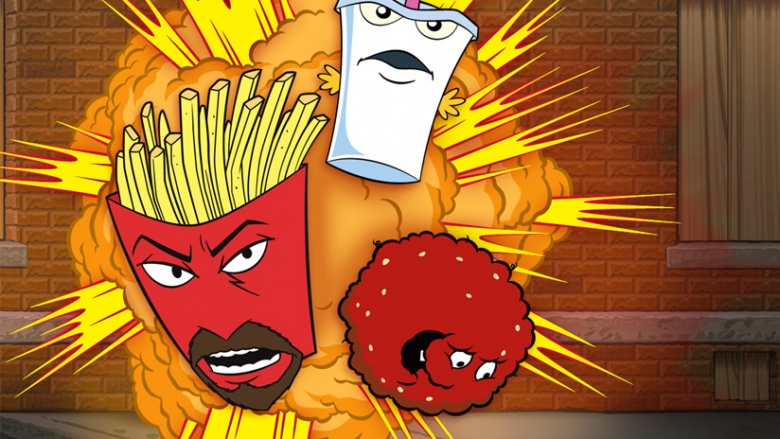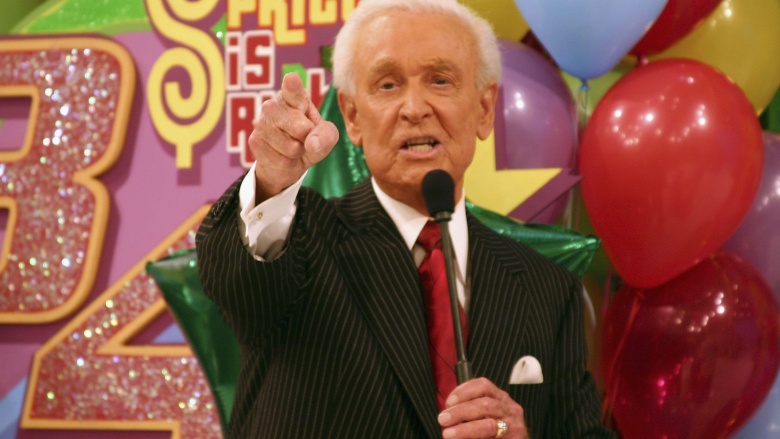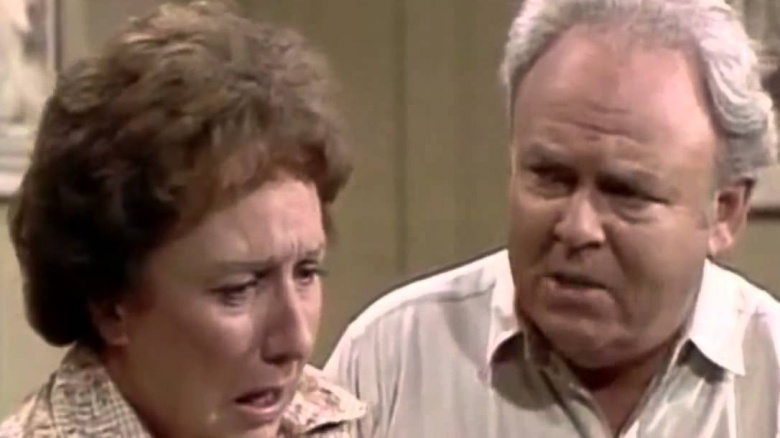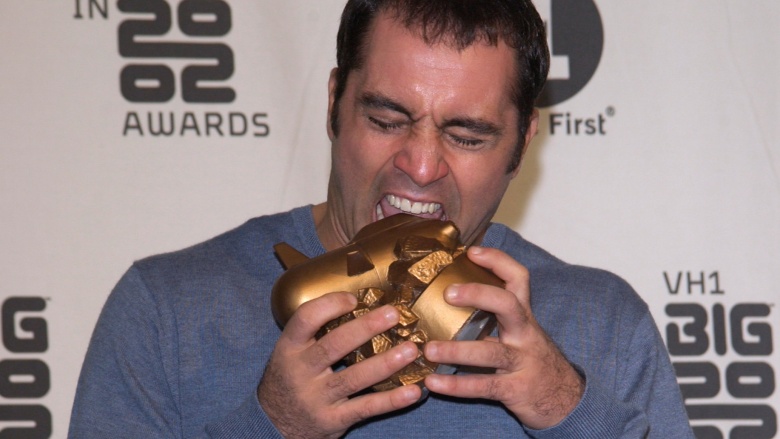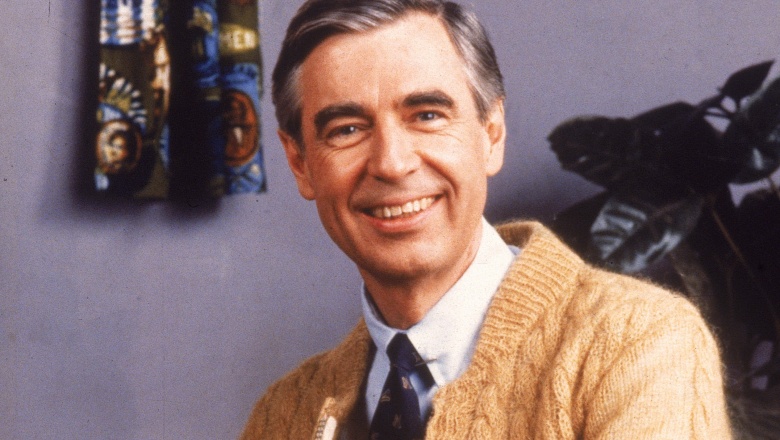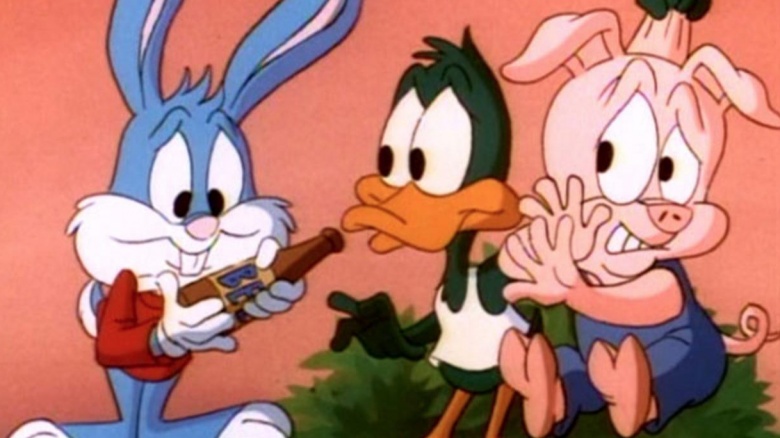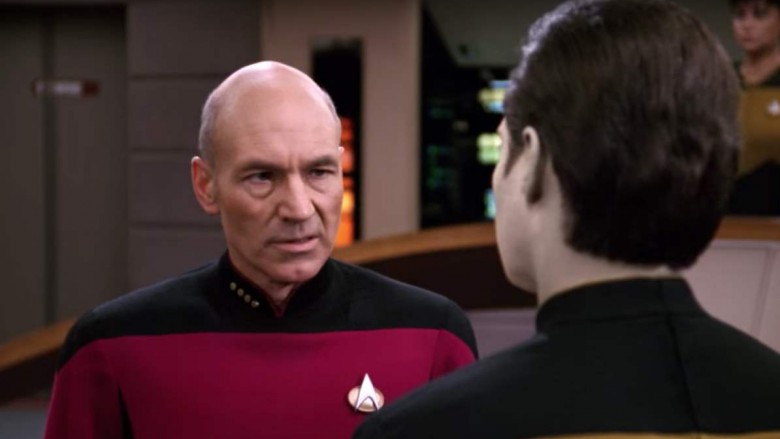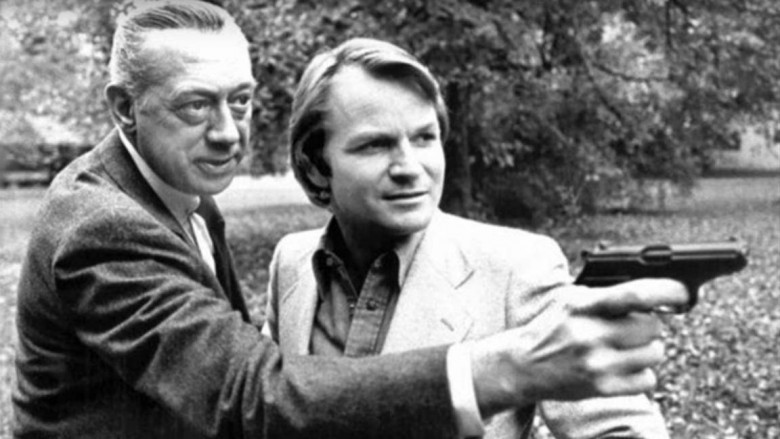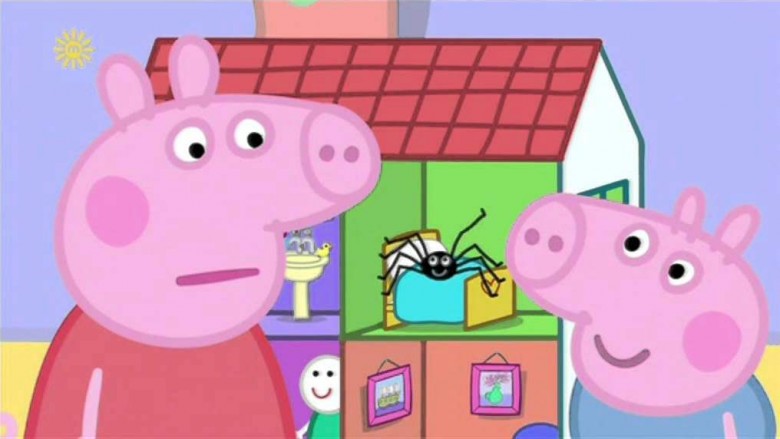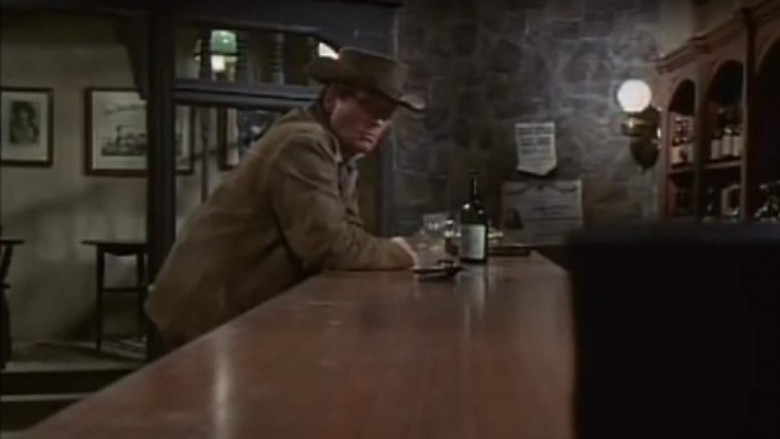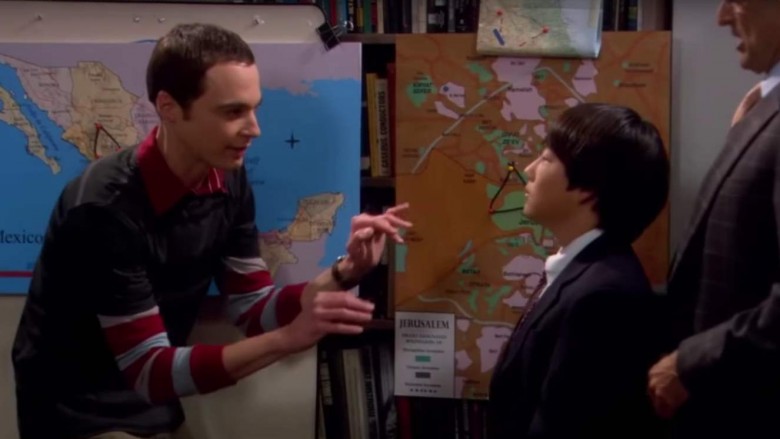Banned Episodes From Popular TV Shows
The Good Wife, The Practice, and NCIS were all famously banned from Chinese streaming services after they surged in popularity as a welcome change from the mundane programming of the country's government-controlled television. Seen primarily as a move by the "regulation-friendly" regime, these show bans had everything to do with exerting power and nothing to do with content. There have, however, been other shows throughout the years that pushed the limits so far with shocking or controversial content that government leaders around the globe ordered them off the airwaves. Here are some popular TV show episodes that were banned.
Electric Soldier Porygon - Pokemon (1997)
Only ever airing once in Japan, Pokémon's "Electric Soldier Porygon" is probably the best known title on this list since it actually caused a medical crisis, sending over 600 kids to the hospital. After a scene that featured a flashing, strobe-like effect with multicolored lights, kids started having vision problems, headaches, and nausea, with some actually having to be treated for seizures.
The incident got worldwide media attention, because it's not every day a TV show shocks people into a physical health emergency. The only other time we can recall this happening is probably the series finale of The Sopranos. To this day, if a show cuts to black for more than one or two seconds, we begin to violently shake and yell, "There's no way that's it! You've got to be kidding me!"
Patterns of Force - Star Trek (1968)
The original Star Trek was ambitious in its attempts at social commentary, most famously highlighted by the interracial kiss from the episode "Plato's Stepchildren." But even before Kirk and Uhura locked lips, Star Trek devoted an entire episode to an alien planet under Nazi-like rule, even going so far as to use Nazi uniforms and symbology. The alien race suffers the same fate as Germany when a charismatic leader—who is actually a brainwashed former Starfleet professor—almost manipulates the masses to his genocidal will until Kirk and Spock intervene and reinstate a peaceful government.
Strangely, this did not go over well in Germany, who refused to air the episode until 1996. After all, it's one thing to use the reference of a tragic historical event, but it's quite another to imply that the man responsible for one of the greatest atrocities of all time may actually have been a scapegoat.
Prime Time Episodes In China - SpongeBob SquarePants (1999)
While a commission dedicated to the protection of morality in Ukraine attempted to ban SpongeBob SquarePants for SpongeBob's "questionable relationship" with Patrick, China actually succeeded in booting the loveable yellow block from its primetime hours. Seeking to reinforce its own cultural values through domestic programming, the hardlining regime wanted as few eyeballs as possible on SpongeBob, which is kind of remarkable when you think about it. They could easily have banned the show altogether, but they probably knew the uproar would be so fierce they'd have another revolution on their hands. And if the mental image of millions of pink starfish protesting in the streets doesn't bring even a slight smile to your face, then you are dead inside and need to go hug a puppy until you feel feelings again.
Dial M For Monkey - Dexter's Laboratory (1996)
Cartoon Network was known for getting away with a lot of questionable content in the late '90s, and ended up being responsible for a number of animated episodes that were banned after a single airing. One of the most notorious examples comes from the 1996 Dexter's Laboratory segment "Dial M for Monkey."
It's widely rumored that "Dial M for Monkey" was banned throughout North and South America because of the characters Silver Spooner, who was a flamboyant gay stereotype, and Krunk, who gets drunk and throws up. Other stories say the segment was banned because of Barbequor, a parody of Marvel's Galactus, which reportedly upset the publisher. There's more credence to that second rumor, especially because the Tick animated series ran into similar problems with its 1995 episode "Alone Together," which features a Galactus parody named Omnipotus; it was never released on DVD for allegedly similar reasons.
And we probably can't even talk about why the Cow and Chicken episode "Buffalo Gals" was only aired once.
The Cartridge Family - The Simpsons (1997)
"The Cartridge Family" tried tackling the issue of responsible gun ownership in the classic screwball way that—much like South Park—often gets shouted down by detractors before it's ever allowed to make its point. In actuality, the UK was the only country to specifically ban the episode outright, which isn't surprising given their strict gun control policies, but they may have made a knee-jerk reaction to the overall concept without actually watching the show.
Supposedly they took issue with Homer and Bart messing around with a gun in a way that made it look like goofy fun, which ironically was the whole point of the episode, which can be summarized as "Attention Dummies: Don't do this with guns." So, instead of allowing a reasonable message to play out in the form of comedic social commentary, they just created a negative mystique around something they actually agree with. D'oh.
201 - South Park (2010)
Not only banned in several European countries, but ultimately also in U.S. repeats, the last episode of South Park's 14th season attempted to satirically address extremist outrage over the depiction of the prophet Mohammed. As per what has come to be almost a formula for South Park, this of course included direct depiction of the prophet, as well as incendiary dialogue from obvious foils meant to provoke a shock response before ultimately being refuted with a moral lesson.
Comedy Central wasn't willing to take the risk (the network was receiving death threats from Muslim extremist groups), so it heavily censored the dialogue with audio bleeps as well as any image of Mohammed. They even censored Matt Stone and Trey Parker's director commentary on the DVD release, and went so far as to not even include the episode on DVDs that would be sold in certain parts of the world, specifically the Middle East. It was particularly bad defeat for the guys known for pushing the envelope and usually getting their way, but on the bright side, they weren't murdered for blasphemy. So that's a plus.
Home - The X-Files (1996)
Another interestingly self-imposed ban happened to The X-Files with their episode, "Home," which dealt with the controversial theme of incest. Named for the small Pennsylvania town in which the episode takes place, "Home" also features gruesome violence, which led to it receiving the first ever TV-MA rating for a network TV show.
Audiences loved the episode and the reviews were mostly favorable, but being slapped with a mature rating from censors was enough to scare the network from ever running "Home" again. It's now considered a cult classic, and some would argue the best episode in the history of the series, which has to be bittersweet for the showrunners considering it has nothing to do with the overall paranormal conspiracy theory that the The X-Files is ultimately about. Turns out people would rather watch inbred monsters murder people than discover if the truth is really out there.
Earshot - Buffy the Vampire Slayer (1999)
After gaining the power to hear people's thoughts, Buffy thinks she overhears a student planning a mass murder. It turns out he was just planning to commit suicide, and while that's a pretty grim storyline even for a horror/comedy show, it probably would've made the air if it wasn't scheduled for the week after the Columbine High School massacre. They did, however, wait a tactful five months and aired the episode the following season, because that was probably enough time for the victims and anyone else traumatized by the real life tragedy to handle seeing a character holding a rifle in the school's clocktower. Way to go, WB.
All Episodes in Mississippi - Sesame Street (1970)
According to the urban legend fact-checking site Legends Revealed, in 1970, the state of Mississippi banned Sesame Street from public television. Spearheaded by the former Mayor of Jackson, he and a lobbyist group convinced the five-man Commission on Educational Television that public funds shouldn't be used to create a show with such "a highly integrated cast of children." Ah, the old "This isn't about race it's about taxpayer money!" canard.
Ironically enough, Legends Revealed also points out that the town of Leland, Mississippi proudly displays a placard calling itself "The Birthplace Of Kermit The Frog," since Jim Henson—The creator of Sesame Street—grew up there. After an opposing member of the commission leaked the story to The New York Times, nationwide outrage ensued and the ban lasted only 22 days. But it probably also had a lot to do with how much money the town of Leland spent on that sweet placard. It ain't easy being gree—dy and racist.
The Ricardos Visit Cuba - I Love Lucy (1956)
Lucy, Ricky, and Little Ricky travel to Cuba so Lucy will hopefully impress Uncle Alberto, who would have preferred Ricky to marry a Cuban woman. Lucy, true to fashion, bungles the entire encounter, and everyone in 1950s America had a good chuckle, because women, amirite?
Anyway, nobody had any issue with the episode until after relations between the U.S. and Cuba soured in the early '60s. Despite the absolute lack of controversial material, it was apparently just too much to let the general public see Lucy stumble through one ruined-cigar-gag after another, because that's literally the entire episode. Seriously though, the fact that Lucy ruining Uncle Alberto's straw hat might have boiled tensions over enough for us to go to war with Russia is probably the scariest and saddest historical television fact ever.
Flight as a Feather - The Mask (1996)
Quick question—which of these is a worse idea: making a television show based on arguably one of Jim Carrey's worst movies, or having a character in it who is a stripper wearing a suicide vest? The answer is both. They're both terrible ideas, which is how an episode of a show literally made for 7-year-olds got banned from television. The character was called Cookie BaBoom, and she was suicidal because somebody dumped her, so the whole thing was not only lazy writing, but also a pretty gross example to set for a kid who witnessed a failed relationship. "Don't worry Timmy, you'll still see Daddy every other weekend. Unless his new girlfriend blows him up like Mommy wished she could have."
Boston - Aqua Teen Hunger Force (2008)
The creators of Aqua Teen Hunger Force wrote an entire episode parodying the infamous marketing fiasco for their feature film that resulted in Boston police responding to a bunch of homemade Lite-Brite displays as if they were legitimate bombs. The whole incident ended up costing $2 million in fines and settlement fees, so Turner Media ultimately balked when it came time to air the parody episode a year later. While the marketing stunt ironically worked much better than they probably ever hoped for, the city of Boston later suffered an actual terrorist attack using an improvised explosive, so if you're desperate to see a show that even remotely mocks anything close to that, we wouldn't suggest holding your breath.
Episodes Featuring Fur Coats - The Price Is Right
You're probably thinking "What could possibly get The Price Is Right banned from TV?", but if you remember Bob Barker's constant reminder at the end of every episode to "have your pet spayed or neutered," you're one step closer to the answer. At Barker's request—and in solidarity with the host's fervent stance against animal cruelty—the show stopped giving away fur coats. They then took it a step further and stopped all future airings featuring fur coats as prizes. That's a pretty remarkable gesture, which also highlights the substantial influence Barker had at the show. Granted, he later had other episodes taken off the air that featured some of the "Barker's Beauties" who had filed harassment lawsuits against him, which seems considerably less noble, and also makes that whole thin microphone thing extra creepy to us for reasons we can't even really explain.
Edith's 50th Birthday - All in the Family (1977)
According to the website TV Tropes, "Edith's 50th Birthday" was banned in Australia after just one airing because the general public was so upset with the depiction of a rape scene. Yep, you read that right. An episode of the sit-com, All in the Family, had a rape scene complete with audience laughter, pratfalls, and cartoonish violence. Amazingly, the show was well received in the U.S., even inexplicably winning an Emmy for writing for that particular episode. And look, we're well aware that All in the Family famously tackled social issues, but the idea that a woman—blissfully ignorant as Edith was—would offer her attacker coffee as an alternative is grotesquely offensive. "I've got Sanka!" was the line that she blurted out while being forced onto a couch to which the audience riotously laughed. Sorry, America, but Australia had you totally pegged on this one and they eat stuff called Vegemite down there. Let that sink in.
Hee Haw! Hee Haw! - Fear Factor (2012)
Fear Factor was known not only for its crazy physical stunts, but also for the psychological challenges it threw at contestants, which sometimes meant they had to ingest the worst imaginable parts of animals or insects. It was one of these segments in particular that led to NBC not only pulling that episode, but cancelling the entire series soon after, which had only been back on the air for less than a year.
The episode featured three sets of twins who had to choose between drinking the only two liquids you can collect from a donkey. For the sake of your lunch, we'll leave the description at that. Aside from the general grossness of the whole concept, one of the options had a decidedly sexual connotation, which might have been the specific reason for not airing the episode. Or they may have just been thinking, "Well guys, if this is what we're down to, it's pretty clear we're entirely out of ideas for this show." As of this writing, the show still isn't back, but we're sure somewhere, a producer is digging through the dumpster behind a butcher shop just waiting for the right timing.
Conflict - Mr. Rogers' Neighborhood (1983)
The central focus of Mr. Rogers' Neighborhood was always on teaching moral lessons to children through stories and songs, but the show made an odd choice when it came to attempting to explain nuclear proliferation. Yep, that's right, during the Cold War, Mr. Rogers tried to explain what was going on between the U.S. and Russia with a five-part storyline in which King Friday begins stockpiling bomb-making materials because he believes Southwood is gearing up to attack Make-Believe. So, what you had was puppets engaging in espionage, political paranoia, and teaching lessons on air raids and gas mask use.
According to The Neighborhood Archive, an exhaustive Mr. Rogers retrospective site, the episodes actually aired until 1996, but haven't been aired since. It's difficult to find a specific reason for why PBS stopped showing them, but if we had to guess, we'd say it was probably because they were terrifying! Don't get us wrong, we're huge fans of Mr. Rogers and everything he did to help children understand difficult and emotional issues, but a nuclear arms race puppet show sounds more like something suited for South Park.
Elephant Issues - Tiny Toon Adventures (1991)
Of the three segments in the Tiny Toon Adventures episode titled "Elephant Issues," only one was controversial enough to get the episode banned from TV. See if you can pick which of these it was: 1.) "Why Dizzy Can't Read" – A segment about how watching too much TV is bad and reading is better. 2.) "C.L.I.D.E. and Prejudice" – A segment about how popularity isn't the most important thing. 3.) "One Beer" – A segment in which three characters get drunk, steal a police car, drive it off a cliff, and die.
If you said anything other than, "The one where cartoon characters violently die a realistic death," you probably won't ever have a career writing for children's television. In fairness, the episode did start with a warning that it was going to be addressing "relevant issues," but maybe the dangers-of-alcohol-abuse segment could have dipped its toe into areas like hangovers, job loss, or family stress before diving right into vehicular manslaughter.
The High Ground - Star Trek: The Next Generation (1990)
This episode of Star Trek: The Next Generation featured Picard and the gang visiting the non-aligned planet of Rutia IV, where "a generation of peace has ended with terrorist attacks by Ansata separatists who are demanding autonomy and self-determination for their homeland on the western continent." This was clearly meant to represent the Irish Troubles, even to the extent the timeline of the conflict described by a Rutian anti-terrorist officer roughly matches the timeline of the Irish War of Independence and the Anglo-Irish Treaty in real-world history.
The episode first aired in the US in January 1990, only a few months after an IRA bomb attack at the Royal Marines Music School in Deal in southern England that killed 11 and wounded 22. In that context, a simplistic and cynical sci-fi take on the conflict wasn't exactly welcome. What made the already ham-handed analogy even more egregious was a quote by Data implying terrorism was historically an effective political strategy, using the "Irish Unification of 2024" as an example.
Due to the political nature of the episode, it wasn't aired on terrestrial television in the UK or the Republic of Ireland, and only aired in an edited form on the satellite TV channel Sky One. The unedited version was finally broadcast on Sky One and BBC Two in 2007 and 2008 respectively, sufficiently long after peace agreements were achieved.
What makes the whole thing really silly was the episode wasn't even meant to be about the Irish Troubles at all, but rather the American Revolution, and writer Melinda Snodgrass was displeased with the change. She said, "I wanted it with Picard as Cornwallis and the Romulans would have been the French, who were in our revolution, trying to break this planet away. Suddenly Picard realized he's one of the oppressors. Instead, we do 'Breakfast in Belfast,' where our people decide they're going to go off to Northern Ireland." It's a shame—her original conception of the episode sounds much more interesting.
All of Derrick from German Television
While less known in the United States, the Munich-based detective series Derrick was a smash hit in Germany throughout its 1974-1998 run, and was exported for syndicated broadcast to 102 countries around the world. Reruns within Germany came to a sudden halt when it was revealed in 2013 that the late Horst Tappert, who played the eponymous Inspector Derrick, had lied about his service during the Second World War. Having long claimed to have served as a medic, it was revealed through Wehrmacht archived records that Tappert had actually been a panzer grenadier in an anti-aircraft group under the command of the Waffen-SS, considered Hitler's personal paramilitary forces. He joined at the age of 19 in 1943, and was promptly wounded while fighting on the Eastern Front.
While it wasn't clear whether Tappert had chosen to join the SS or was coerced into it, he never mentioned his service in his memoirs or remarks on his wartime history. In response, the German public broadcaster ZDF pulled all 281 episodes of Derrick from syndicated reruns and were quickly followed suit by the Dutch public television channel Omroep MAX. It's always a bummer when your crime-fighting heroes turn out to be secret Nazis.
Mister Skinnylegs - Peppa Pig (2012)
Peppa Pig is no stranger to controversy: she's been accused by deranged News Corp columnist Piers Akerman of being a Marxist-Leninist and feminist extremist and was also the subject of a false rumor accusing the show of causing autism in children. However, there's one example of poor Peppa being banned from television that's actually understandable.
The episode "Mr. Skinnylegs" features the piggy family on the show befriending a spider, with the implication that arachnids are our friends and nothing to be afraid of. This is (mostly) harmless enough in the United Kingdom, but a potentially dangerous message to send to children in Australia, home to some of the most venomous spiders in the world. The Australian Broadcasting Corporation had restricted airing of the episode on its networks but accidentally published it online due to a "technical error," and viewers quickly complained, rightly terrified of Australian toddlers trying to make friends with deadly funnel-web or redback spiders. The ABC quickly removed the episode from its available online content.
Living in Harmony - The Prisoner (1967)
This episode of the surreal series The Prisoner featured a novel method of trying to psychologically break down the protagonist Number 6 by placing him within a virtual reality simulation of an Old West community and trying to coerce him into playing the role of sheriff. It was the only episode of the program banned from broadcast in the United States during the initial series run—ostensibly due to the portrayal of mind-altering drugs. This was a pretty disingenuous explanation considering drugs feature heavily in most of the episodes. Indeed, we have it on good authority that hallucinogenic substances only improve the viewing of the show, though we wouldn't know anything about that. (Ahem.)
The more likely reason for the ban was the plot device in which Number Six, in his guise as the sheriff, refused to pick up his badge and gun to defend his community. This was seen as a refusal to serve, a politically sensitive message during the height of the Vietnam War. While the show often dealt in subversive themes, they were a lot easier for American censors to swallow in a British-accented fantastical spy world than in the very American setting of an Old West town.
There are also claims the episode wasn't dropped for political fears but because it was a slightly bewildering filler installment designed primarily to slake star Patrick McGoohan's desire to play a cowboy. In the U.S., The Prisoner was only meant to fill the gap between seasons of The Jackie Gleason Show and there was one more episode than the number of spare timeslots. The easiest episode to drop was the one where they tried to convince the audience that scenes shot in soggy northern Wales were taking place on the sun-bleached American frontier. Everyone knows only the Italians can get away with that sort of thing.
All of Big Bang Theory in China
China is pretty ban-happy when it comes to imported shows. Some of the reasoning is rational enough, if a program features something the Communist Party finds politically sensitive or in violation of some obscure regulation. Other times the rationale is sillier, such as the banning of Doctor Who and other time-travel shows because of fears they take a "frivolous approach to history" and encourage viewers to imagine alternate realities.
The Big Bang Theory ban is one of the sillier cases. The show is quite popular in China, as it has coincided with the rising social trend of diaosi, or "penis thread"—originally a pejorative term for broke loser guys without jobs or girlfriends. Diaosi has been reclaimed in a hipster-like fashion by young guys (and ladies) proud of their so-called loser status and see the characters in The Big Bang Theory as role models. When the State Administration of Press, Publication, Radio, Film and Television (SARFT) pulled the show from the streaming service Sohu, many believed the reason came down to an anxious paternal rejection of the notion that it's hip to be square.
While it's also possible SARFT simply wanted to claim more of the revenue stream of the highly popular and profitable show (and to produce sanitized state-approved subtitles), we prefer to believe that in the Beijing halls of power, there's a great fear of Sheldon Cooper as counter-cultural iconoclast threatening to destabilize the social order. When it was announced there would be broadcasts of censored versions of the program, the response from Chinese netizens was furious, with one declaring "I won't watch the castrated versions. If I'm going to watch, I'm going to watch the complete versions." Rock on, diaosi.
